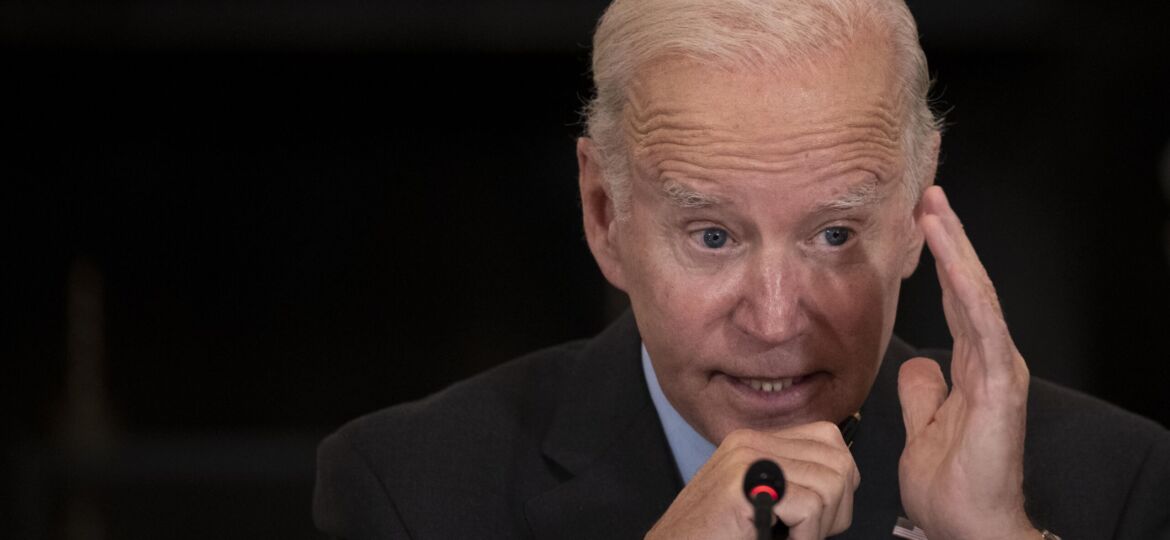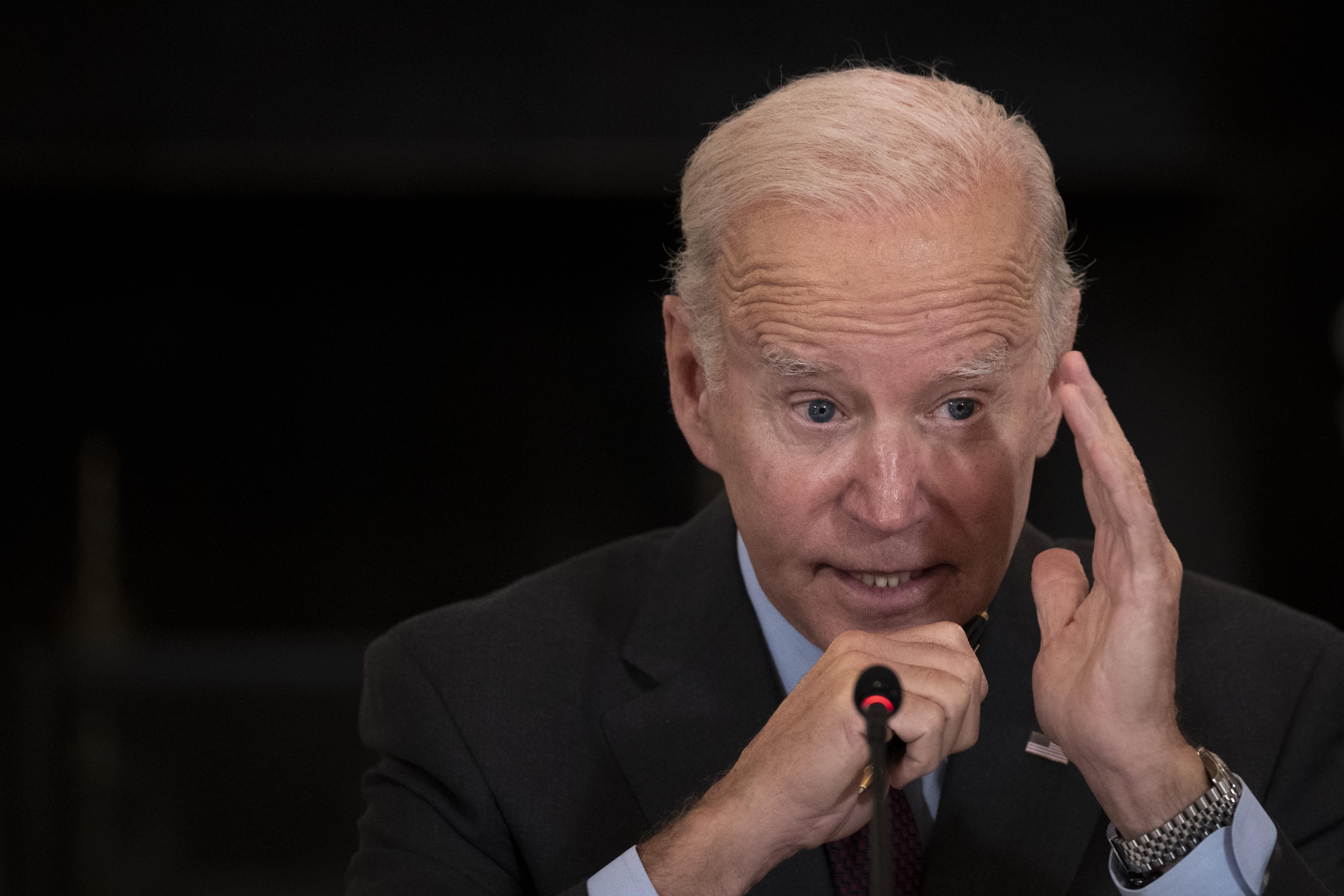

No prisoners will walk free following President Joe Biden’s pardon, last week, of low-level marijuana offenders.
As president, Biden only has power to pardon federal offenders. And in recent years, the feds haven’t been locking people up for possession. Meanwhile, the number of people federally convicted of trafficking and other more serious pot crimes fell from 7,000 in 2012 to just under 1,000 in 2021. It went from the feds’ most convicted drug to their least.
Biden’s pardon instead benefits the roughly 6,500 Americans who have previously been convicted of federal possession. They have served their time or otherwise paid their debt, but having a conviction in their past can block their access to employment, housing, student loans, and other opportunities.
Marijuana possession remains—by far—the country’s most common drug charge. Arrests peaked at more than 800,000 in 2008. As with virtually everything related to drug prosecutions, people of color are far more likely to be punished. But the vast majority of these offenders went through state justice systems over which Biden has no control. Instead, he urged governors to follow his example. As they have legalized marijuana, some states have taken measures to “expunge” past pot offenses; others haven’t. Nationwide, hundreds of thousands of people could probably be pardoned if governors heed Biden’s call.
As in the federal system, state offenders for serious pot crimes are much more likely to be incarcerated. However, there are still people serving long sentences for mere possession. Several months after the state legalized medical marijuana, Mississippi’s Supreme Court upheld a life sentence for Allen Russell, who’d been convicted of possessing about an ounce. The draconian sentence owed to his previous convictions for burglary and a weapons charge.
In 1994, then–Sen. Joe Biden sponsored the crime bill that incentivized prison construction and accelerated mass incarceration. It’s a remarkable moment for him as president to say no one should be locked up for holding weed. He also directed the federal government to review the plant’s untenable legal status: It’s federally illegal, but there are now more than 20 legal state markets.
It’s probably not an accident that the announcement came weeks before the midterms. Two-thirds of Americans, and close to 80 percent of Democrats, support legalization, and the pardon may give a boost to Democrats beyond the relatively few who make it central to their campaigns. The move, however, stops well short of helping to release prisoners who committed a crime that’s no longer a crime.
As legalization becomes more widespread, the nature of pot crime has evolved with it. Though weed is legal here in California, the state-licensed industry is in crisis because an estimated 70 percent of the product that consumers purchase comes from the illegal market. One reason illegal operators do so well is they don’t tax upward of 35 percent, which state consumers must pay for legal product. Legalization has emboldened illegal operators to operate openly and at industrial scale. (Oklahoma, where there’s a freewheeling medical marijuana market, has similar problems.)
Massive illegal farms are criminal enterprises. Their armed workers scare the neighbors. They pollute, and steal water and power. They abuse defenseless workers. At some point, growing pot ceases to be a victimless crime. But amid pot’s quasi-legality, states largely lack the will and means to crack down on them. Understandably, many cannabis lovers are reluctant to advocate serious punishments like imprisonment for any nonviolent offender. Industry leaders are probably right that reducing taxes for legal product is the fastest way to shut them down.
Today, American cannabis culture functions as both a religion and a for-profit industry. It’s a culture that reveres outlaws. Its high priests are the legacy growers of Humboldt County who dodged helicopters and risked their freedom to grow the sacred medicine. Today, those stories get recast as small (legal) growers fighting for survival against bland corporate weed. The illegal market has more staying power than bathtub gin after Prohibition, and that’s a huge problem for legal growers, large and small.
Some of these questions went on trial in federal court in May. Jonathan Wall, a white 27-year-old, smuggled hundreds of pounds of weed from California to the East Coast. The amount of product was tiny compared to what state-licensed farms produce, but he had operated outside any legal channel.
Wall’s co-conspirators—with whom, not long ago, he’d been following Phish—pleaded guilty. Wall pleaded not guilty, taking a stand for a question his lawyer posed in a filing: “Who will be the last American to be deprived of their life and liberty for marijuana?”
The soaring rhetoric proved grievously ill-advised as a legal strategy. Wall’s buddies testified and the jury convicted him of running an interstate trafficking operation. He now awaits sentencing facing a mandatory incarceration of 10 years at minimum. Many cannabis lovers view Wall as a hero and martyr. Biden, at least for now, thinks he’s a criminal.
For advocates and people who were swept up in the federal government’s marijuana prosecutions for decades, Biden’s move to pardon federal possession offenders is a welcome recognition. But it only helps a small fraction of the people whose lives such enforcement has ruined.
There’s obvious hypocrisy in the overlapping systems that lock up small-time hustlers while companies across the state line, or even within it, harvest weed on an industrial scale. But there are far fewer people locked up than there used to be. At the same time, some of the states that have legalized are far ahead of Biden in expunging the records of low-level offenders. This is progress, but it’s progress that has taken far too long—especially if it only ends here.

